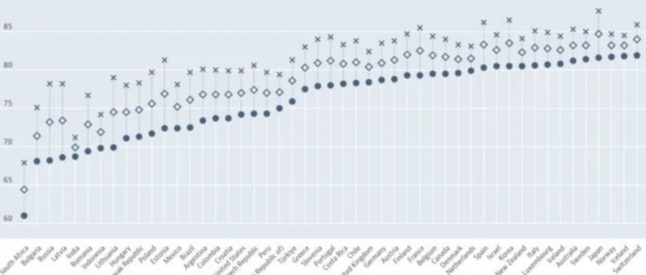Some studies indicate that Switzerland’s population is expected to exceed 9 million people this year (from the current 8.8 million), and reach the 10- million mark a few years down the road,
This growth is due to several factors, one of which is that people in Switzerland are living longer — in fact, according to some figures, the country has the highest life expectancy in the world.

Another important factor is that the number of foreigners who have settled in Switzerland in the past few years has grown significantly.
“Switzerland has been in a situation of uninterrupted demographic growth for several decades, and this is explained in particular by the arrival of young migrants, who also contribute to the Swiss birth rate,” according to Philippe Wanner, professor at the Institute of Demography and Social Economics at the University of Geneva.
This prospect is prompting MPs to ask the Federal Council to develop scenarios on how the small country can make room for that many residents.
Specifically, deputy Judith Bellaiche has called on federal authorities to devise, already now, a plan on how to prepare the country’s infrastructure for the growing numbers.
In response, the Federal Council said it “will take up these concerns in the context of legislative planning from 2023 to 2027.”
What exactly does this entail?
These are the main areas where measures would have to be taken:
Housing
Housing, especially in cities where most immigrants settle, has become scarce.
In Zurich, for instance, 30,000 foreign nationals settled there in 2022.
And according to a forecast by the Zürcher Kantonalbank (ZKB), more people are likely to move to the Zurich area this year as well — only to be faced with a shortage of dwellings.
READ ALSO: Zurich hit by affordable housing shortage amid record-high immigration
In other high-demand housing markets, like Geneva, the situation is similar.
To remedy the situation — and ensure that expanded population will find accommodations — the government must attack the root of the housing problem.
One way would be to ease construction regulations to allow more dwellings to be built. Right now, dense construction is becoming increasingly problematic because of high land prices in many regions, along with noise protection regulations.
Various politicians are already proposing this, and other measures to counteract the housing shortage.
READ ALSO: How can Switzerland solve its housing shortage and curb rents?
Healthcare system
There are more than 280 hospitals throughout Switzerland, and the general level of care is excellent.
Except during the Covid pandemic, when these facilities became saturated, in normal times access to patient care is not a problem.
But is Switzerland’s system ready to handle the influx of more people?
Only time will tell whether the current number of public hospitals and private clinics suffices. A major problem, however — unless it will be resolved in the meantime — is a shortage of healthcare workers.
For instance, there are already about 15,000 too few nurses in Switzerland and, unless more are trained, there may not be enough to care not only for the current population but even more so, for newcomers.
In January 2023, the government made plans to improve working conditions of medical personnel — including fewer hours and better pay — in order to prevent essential staff from resigning, and therefore ensuring enough qualified personnel in Switzerland’s hospitals.
Public transport
One of the arguments brought forth by anti-immigration groups like the Swiss People’s Party is that the more people there are in Switzerland, the more overcrowded public transport will become.
However, beyond stating that in the event of higher population the country will need “a robust and strong railway infrastructure,” the Swiss Federal Railways (SBB) has not yet presented a concrete plan to tackle the 10-million population.



 Please whitelist us to continue reading.
Please whitelist us to continue reading.
Member comments